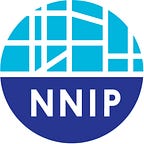How Data Chats Inform Community Conversations about COVID-19 Response
by Jake Cowan
A publication of the Local Data for Equitable Recovery Resource Hub
What do neighborhood residents think is the best way to engage with data about health conditions associated with COVID-19? What do they think should be done in response to COVID-19 and health inequities that disproportionately affect their neighborhoods?
To answer these questions, 11 Milwaukee neighborhoods have teamed up with Data You Can Use (DYCU), a local data intermediary, to plan and host data chats. A data chat is a facilitated conversation that builds data literacy and translates data to inform community decisions about investing in programs and services to improve neighborhood health and health equity. At the data chats in Milwaukee, participants are exploring data about several factors that increase people’s risk of contracting COVID-19, such as high blood pressure and employment in the service industry. The chats encourage residents with these risk factors to take extra precautions while recognizing that the patterns in the spread of the virus reflect long-standing racial and economic inequities shaped by public policy.
Moreover, the data chats give residents opportunities to relate to data as more than just numbers and percentages. For example, during the data chats, participants write down the names of 10 people they know. When they learn that 50 percent of the people in their neighborhoods have high blood pressure, a COVID-19 risk factor, their lists help them understand the scale of the risk and who in their lives could be affected. Seeing that five people they know could have this risk factor personalizes the data.
The data presented at these chats — most of which occurred in September and October 2020 — draw from data digests created by DYCU in April 2020 (a few data chats will take place in November 2020). The digests include neighborhood-level data related to COVID-19 risk factors from the Centers for Disease Control and Prevention’s 500 Cities project and the US Census Bureau’s American Community Survey. They also include indicators and measures of equity and access from other recent DYCU data initiatives.
Data You Can Use works closely with community partner organizations to plan the data chats and guide the conversations. Each neighborhood group that organizes a data chat for their community receives a grant from DYCU, which then works with each group during two or three pre-meetings to review data and provide guidance on what data to highlight during the chat. Each partner organization also identifies the virtual platform that works best for its community, decides when to hold the data chat, and recruits 10 participants. Several partner organizations have also translated their data digests into Spanish. DYCU has provided support for these translations, and also secured translation support for several data chats to be conducted in Spanish and English.
Conducting data chats virtually presents challenges, and DYCU is finding that each data chat is unique. For example, participants sometimes have challenges logging on to Zoom. During one data chat, most participants joined via phone, and DYCU talked through the data digest without the aid of data visualizations.
The biggest surprise for DYCU is that two communities requested that their data chats be held in person, with social distancing and a mask requirement for all participants. One was held in a public park, with data visualizations printed and posted on a presentation board. Another occurred on the porch of the sponsoring organization. Two other groups initially planned to hold their data chats in person but have since decided to hold them virtually as the weather in Wisconsin has grown colder and COVID-19 cases have spiked.
Despite these logistical challenges, communities that are participating in the chats are deeply engaged with the data. During the data chats, they are generating ideas and suggestions for action. Several have asked DYCU for scripts to use to continue hosting data chats. In the coming months, DYCU will work with community partners to learn more about their priorities for short- and long-term COVID-19 responses and solutions and about how they use information from the data chats to engage local government, funders, health systems, and others in discussions about these priorities.
We thank Katie Pritchard and Amy Rohan of Data You Can Use for their contributions to this blog. Data You Can Use is a grantee of the Robert Wood Johnson Foundation’s Using Data to Inform Local Decisions on COVID-19 Response & Recovery program and the Milwaukee partner in the National Neighborhood Indicators Partnership, coordinated by the Urban Institute.
